Kertas Kerja
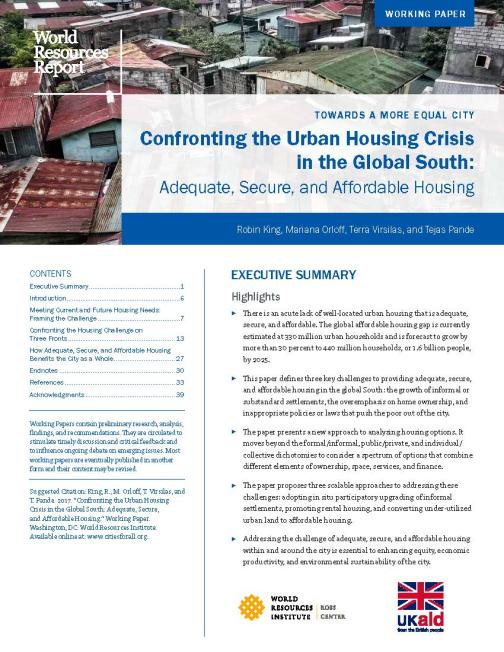
Menghadapi Krisis Perumahan Perkotaan di Selatan Global
Perumahan yang Memadai, Aman, dan Terjangkau
Makalah ini menyajikan strategi untuk membangun kota yang adil melalui perumahan yang terjangkau dan berkualitas sekaligus meningkatkan lingkungan dan ekonomi.
Perumahan yang berlokasi baik, aman dan terjangkau masih sangat kurang di banyak kota dan diproyeksikan akan semakin memburuk - diperkirakan 1,6 miliar orang tidak memiliki rumah yang layak pada tahun 2025. Mengatasi kesenjangan perumahan yang terjangkau harus menjadi prioritas bagi kota-kota, karena hal ini menawarkan tiga manfaat sekaligus, yaitu peningkatan produktivitas ekonomi, kelestarian lingkungan, dan kesetaraan.
Dengan mengidentifikasi tantangan utama dalam menyediakan perumahan yang layak, aman, dan terjangkau di negara-negara berkembang, laporan ini merinci pendekatan yang direkomendasikan untuk memerangi krisis perumahan di perkotaan:
- Peningkatan pemukiman informal yang partisipatif
- Mendorong penggunaan sewa
- Mengubah tanah dan bangunan yang kurang dimanfaatkan menjadi perumahan yang terjangkau
Tlaporannya diproduksi oleh WRI dan memberikan ringkasan eksekutif dalam bahasa Cina, Portugis, dan Spanyol.
Pelajari lebih lanjut
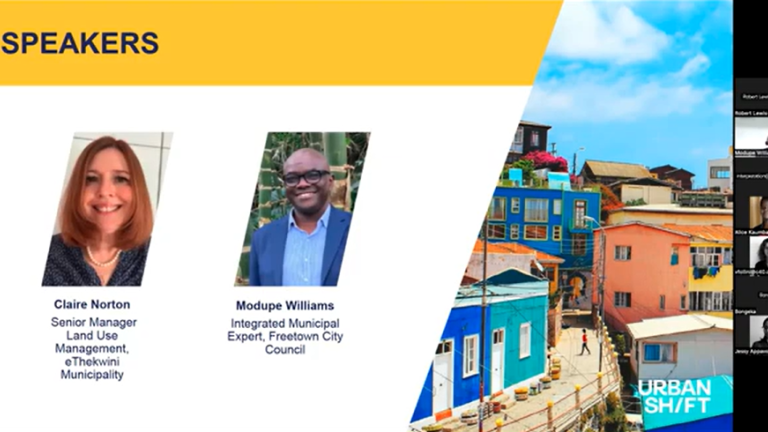
Membuka Potensi Perkotaan Afrika: Memperbaiki Permukiman Informal melalui Perencanaan Berkelanjutan
Karena Afrika mengalami pertumbuhan kota yang pesat, webinar ini akan menjelaskan praktik-praktik terbaik dalam mengelola permukiman informal dan mengembangkannya secara berkelanjutan.
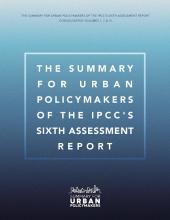
Ringkasan untuk para pembuat kebijakan perkotaan dari Laporan Penilaian Keenam IPCC
Publikasi dari inisiatif Summary for Urban Policymakers (SUP) ini mensintesis temuan-temuan terbaru dari Laporan Penilaian Keenam IPCC melalui kerja sama dengan berbagai kota dan bisnis di seluruh dunia.
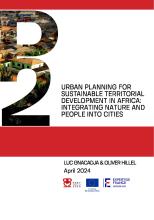
Perencanaan Kota untuk Pembangunan Wilayah Berkelanjutan di Afrika: Mengintegrasikan Alam dan Manusia ke dalam Kota
Buku putih yang diterbitkan oleh Kerangka Kerja Keanekaragaman Hayati Pasca 2020 - Proyek Dukungan Uni Eropa ini memberikan informasi, sumber daya, dan jalur tentang cara menggabungkan alam dan manusia ke dalam pembangunan perkotaan di Afrika.
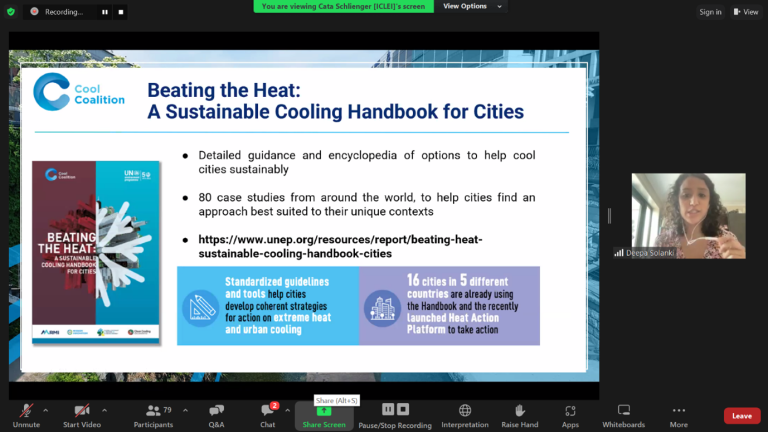
UrbanShift dan Pertukaran Energi Webinar tentang Pendinginan Perkotaan
Bergabunglah dengan UrbanShift dan ICLEI Energy Exchanges dalam webinar yang mengeksplorasi solusi kebijakan dan desain untuk efisiensi di sektor pendinginan gedung.
